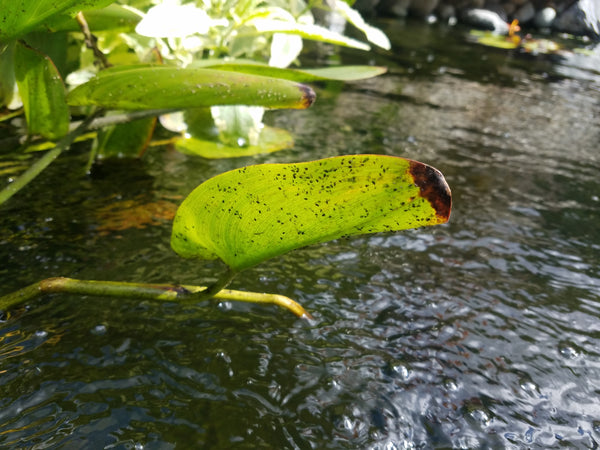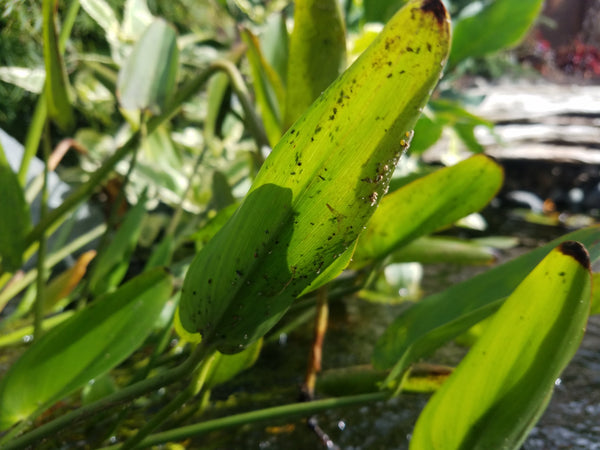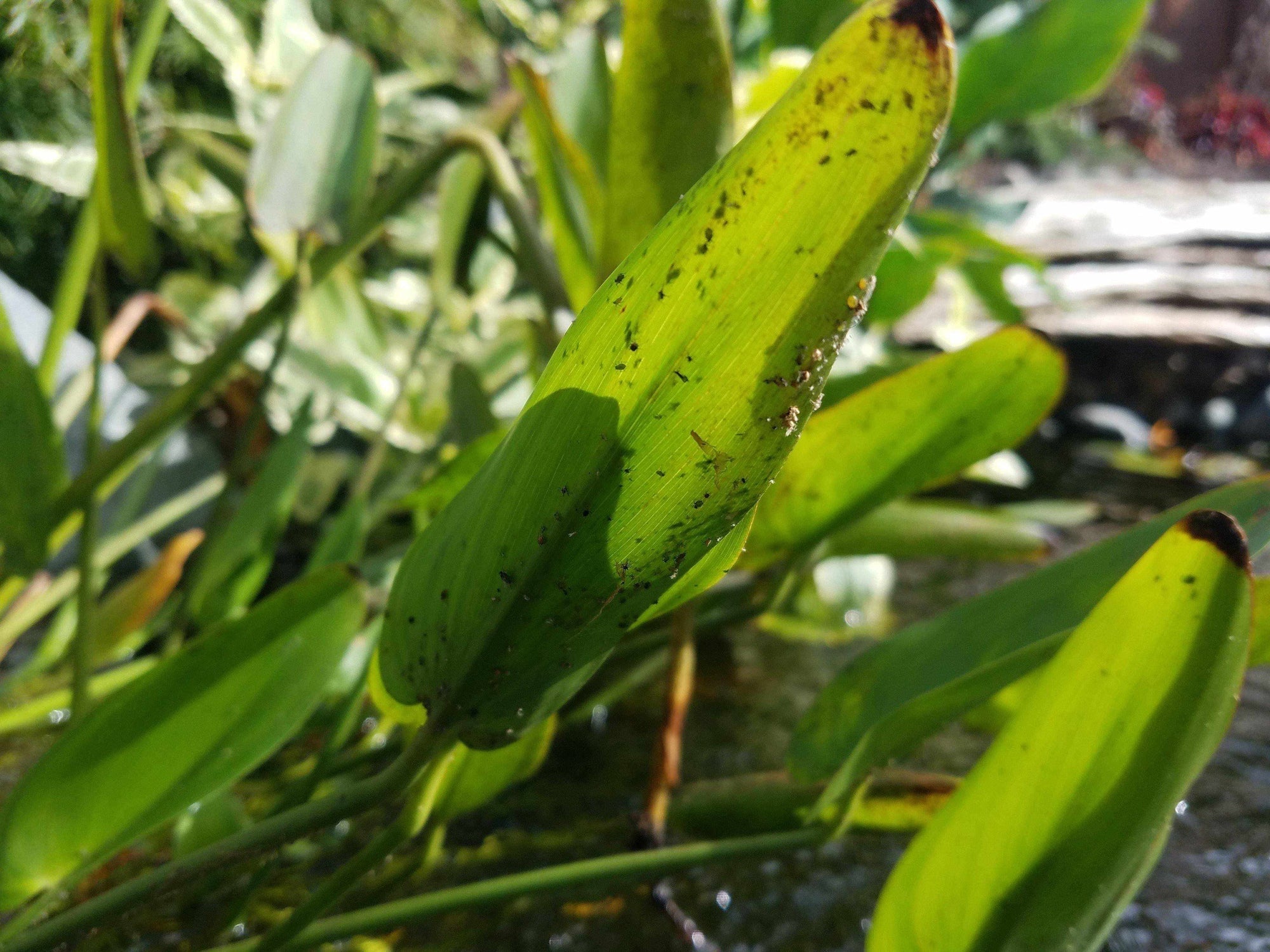
Aphids are a common pest that can be tricky to manage depending on what kinds of plants and animals you have in your pond or water garden. While they may seem tiny and harmless, they have the potential to kill your plants by feeding on them. Aphids are also carriers of various viruses that can pose additional threats to your water garden.
There are roughly 4,000 species of aphids around the world. They are all very small, about 1/8 an inch long, but vary in color. Many aphids start their lifecycle in the Spring, when they hatch from eggs that have matured over the winter months. They have a complex reproductive system, however, that allows them to reproduce asexually, producing live nymphs, throughout the warmer months. Because of this, aphids reproduce rapidly and can quickly become a nuisance. Here is a list of treatments that may help you overcome your aphid problem.
-
Oil sprays are an effective way to treat certain plants, but not all. Lotuses, for example, can die if their leaves come in contact with oil. Oil sprays are harmless to koi and goldfish and can be bought in stores or even made at home. Some people have had success with simply spraying cooking oil on their plants, although others have mentioned that such solutions have killed certain plants, like water lettuce. A creative solution can be made by combining a few drops of a mix of essential oils like peppermint
, clove
, and rosemary
in a spray bottle with water. Neem oil
can be added to water in the same way and has shown to be effective against aphids.
- Tomato plants, a member of the nightshade family, contain alkaloids that are toxic to aphids. One unique solution that doesn’t involve oil is chopping up and soaking tomato leaves in water overnight, and spraying the resulting tea onto infested areas. Similarly, a spray solution of water, a few drops of dish soap, and a touch of cayenne pepper have shown to be successful against aphids.
-
Diatomaceous earth powder
is another effective treatment for aphids, that are harmless to plants. Unfortunately, diatomaceous earth should not be used in ponds or water gardens with fish or other aquatic animals, as it has found to be harmful to your fish's gill health.
- If you want to avoid chemicals, oils, and soaps, you can wash the plants leaves using a hose. A powerful blast of water can knock the aphids into the water, and can be a snack for the fish in the pond. If your fish aren’t interested in the aphids, however, be sure that the uneaten aphids do not swim back to the plants. In all of these solutions, it may be best to take the plants out of the water to treat the aphids.
- Ladybugs
are another non-chemical/oil alternative to an aphid problem. Ladybugs love snacking on aphids and can eat upwards to 5,000 aphids and similar insects over their one-year life span.
- Insecticides should always be a last resort. If used, make sure to remove all infested plants and treat them outside of your pond. Before reintroducing the plants, rinse them with a garden hose to get rid of the harmful chemicals. With all treatments, it is important to carefully monitor how much is used and where. While aphids can be irritating, there are many insects that are beneficial to your garden ecosystem that may be repelled or even killed by some of these methods.
Prevention is the most ideal solution. Aphids are attracted to yellowing leaves, so make sure to regularly prune plants and clip away yellowing or dying leaves. Aphids also like fruiting trees and may lay their eggs on nearby trees and plants. Treating trees and other near by land plants for aphid eggs during the winter months can prevent a spring time explosion.

If you are going to use an an insecticide, we recommend using a fogger for more even disbursement of the insecticide across the plants. By doing so, you improve your chances of not burning the plants with the insecticide. Here is a video to share how we do this using a standard propane fogger + 16 oz of standard mineral oil (found at any drugstore) + 1/2oz of Essentria IC3 Insecticide concentrate. Enjoy!

